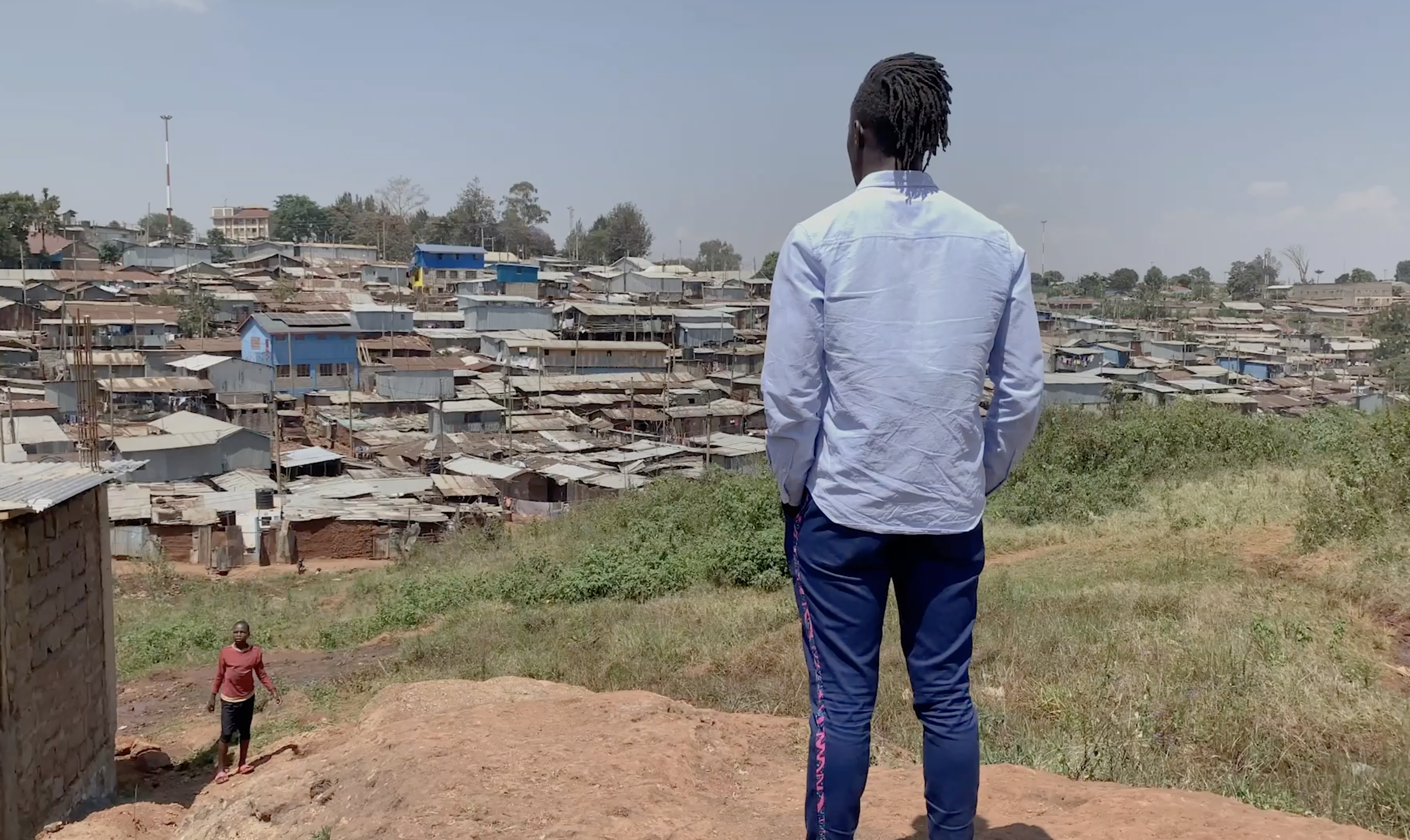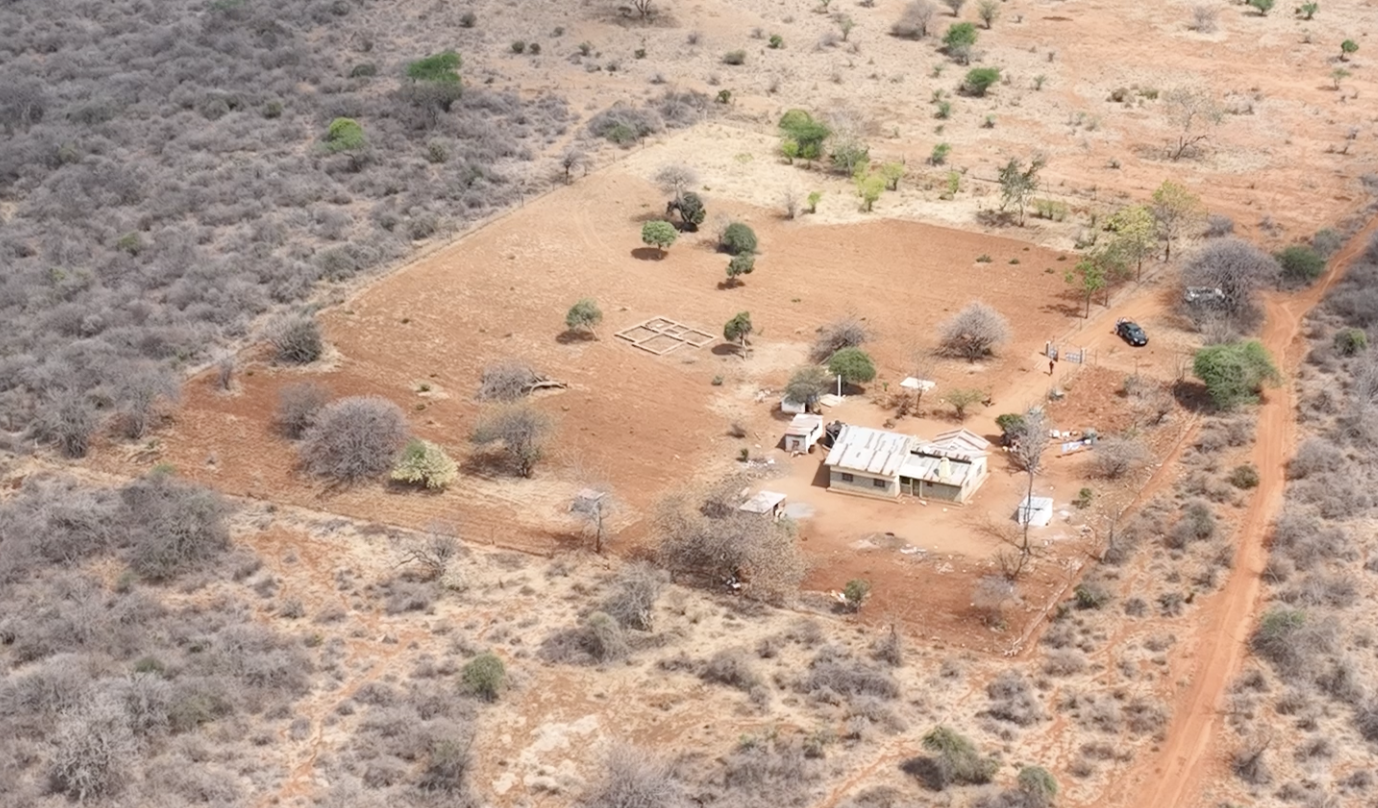
Cheza Cheza: Kibera’s dance school inspires future change-makers
Amid Kibera’s narrow alleys, laundry lines, and side-street hustle, a rhythmic beat pierces the cacophony of daily life. Follow that sound up a concrete staircase and through a dusty blue door, and you’ll be hit by a wave of vivacious dancing energy. Children from the neighbourhood, rhythmically moving their bodies to the beat; spinning, jumping, gliding across the floor with nimble footwork and a contagious exuberance. This is the Cheza Cheza Dance Foundation, Kibera’s school of dance for children.
Standing among the children is Francis Odhiambo, co-founder of Cheza Cheza and an impassioned dancer. Born and raised in Kibera, Odhiambo has been dancing since he could remember. “The feeling is unexplainable. When you dance – I don’t know if heaven is like that – but I think heaven is that way. You just feel free, you feel happy,” he says.
His joy for dance is tangible; a sentiment he now passes on to his young students at Cheza Cheza. However, it was not an easy path for Odhiambo.
Kibera
Growing up in Kibera was tough. An informal settlement on the outskirts of Nairobi, Kenya, it is commonly referred to as “Africa’s largest slum,” and Odhiambo was forced to navigate the treacherous world of drugs and crime that often coincides with poverty. At a young age, he had already lost two of his friends to this environment.
Dance was his salvation, a way to express himself in a world where he struggled to find a sense of belonging. “I found myself not being understood, so dance to me was a form of expression,” Odhiambo explains. “[It] was a form of taking everything that was in my heart outside.”
This was a sense of freedom that Odhiambo felt deeply connected to. And it was one he could not let go of, despite repeated warnings from his family to stop dancing. “Dancing is our culture, it is inside us as Africans. But it is ironic how we treat dance in our families,” he says.
For Odhiambo’s parents, dance equated to drugs and prostition, creating a family conflict that eventually forced him from his home at the age of sixteen. Alone and unable to finish school, a spark was lit inside of him; this growing sense of resilience to prove that dance could breed hope and lead to a brilliant future.
The beginning
It was with this energy that Cheza Cheza was formed. The school was thrust upon him, like it was simply meant to be.
It started one Saturday, when Odhiambo was dancing with his childhood friend, Collins Olouch. Children gathered around to watch the two dance, enchanted by the magnetism of their movement.
Odhiambo and Olouch allowed them to join in, teaching them moves and dancing alongside them. The following Saturday, the kids showed up again, asking to dance. And they kept on coming, Saturday after Saturday, until the school was formed.
“If it wasn’t for dance I don’t know where I would be. Maybe I would be in jail or killed. Dance saved my life and that’s why I keep on dancing. And I want to save other children and youth through dance,” Odhiambo explains
One year and eight months since Cheza Cheza officially started, the dance school has grown from twelve to almost three hundred students. Odhiambo works as the co-founder, alongside Cherrelle Druppers, an education and development specialist. Olouch has taken on the role of teacher and Child Protection Officer, as one of a growing number of dance teachers.
Changemakers
What makes Cheza Cheza unique is its ability to meld life with dance. For Odhiambo, dance proved to be a valuable tool to navigate the harshness of growing up in Kibera; a personal experience that has been translated into his classes.
As more and more children joined his lessons, he realised that while dance was a fun and engaging way to keep kids off the streets, it also helped create a safe space for them to express themselves and build confidence. And with the help of Druppers, they developed a curriculum focusing on life skills education through dance.
When the children first arrive in class, they have an emotional check-in, closing their eyes and connecting to their bodies. As their teacher, Olouch gently guides them, explaining the meaning of feelings and how to manage them. “Emotions are the strongest, big, feelings I have in response to situations…” he tells them.
And then they dance, first identifying their feelings that day and then expressing it through a dance move. Happiness, anger, joy, sadness; this dynamic range of emotion discussed and expressed through the art of movement.
“Whatever we are doing here, we are growing strong minds,” Olouch says. “The important thing is they have strong minds, so they can overcome the challenges and everything coming towards them,”
COVID-19
Cheza Cheza’s after-school programmes were thriving and then COVID-19 struck Kenya. Schools were swiftly shut down and children were at a loss. “One of the biggest challenges we faced since we started Cheza Cheza is COVID-19,” Odhiambo says.
Along the walls of the dance studio, the effects of COVID-19 are clear. “Stay Safe,” “Wash your hands;” and “Social Distancing,” are sketched into the white paint with black marker, and the number of children allowed inside at the same time has been kept to a minimum.
While closing schools helped prevent the spread of the virus, it was accompanied by a number of social challenges that hit hard in vulnerable communities like Kibera.
The pandemic has shaken the community, triggering a sharp rise in unemployment with a growing number of families struggling to put food on the table. “For most kids, school is where they get their daily food. They go to school and eat lunch and believe me, the next meal they eat is the next day at school,” Odhiambo explains. With schools closed, that meal no longer exists.
And without the safe space many children sought at school, Kibera also saw a rise in teenage pregnancies alongside an increase in drug abuse. “School was keeping them away from drugs and being on the street, but now you are back at home. Food is not enough. There are all these things going on around,” Odhiambo explains.
Cheza Cheza reacted quickly, raising money through a crowdfunding campaign to enable them to keep teaching dance during the time of COVID-19.
With schools closed, classes have been held Monday through to Friday, helping children to stay engaged and off the streets. And at the end of each class, students are provided a warm meal as well as dry food to take home for their families. “We keep them away from the negative things they are exposed to, keeping them learning and telling them what is going on around the world,” Odhiambo says.
Looking Forward
From the challenges that come with COVID-19, to the ones simply associated with daily life, dance has been a source of inspiration and strength for the students of Cheza Cheza, just as it was for Odhiambo.
“[Dance] is my passion and it motivates me. Because out there, I can even be a role model,” explains 15-year-old Joanne Atieno, a student at Cheza Cheza.
In a world where life outside poverty can seem impossible, dance has been the key to building self-esteem and imagining a future where dreams can come true. And this, Odhiambo believes, is where the change starts.
“I see the super power they have inside them. I see the change they are going to create because I believe they are the future,” Odhiambo says with a soft smile. “We are going to change so many things in this community. And after our community is Africa.”






